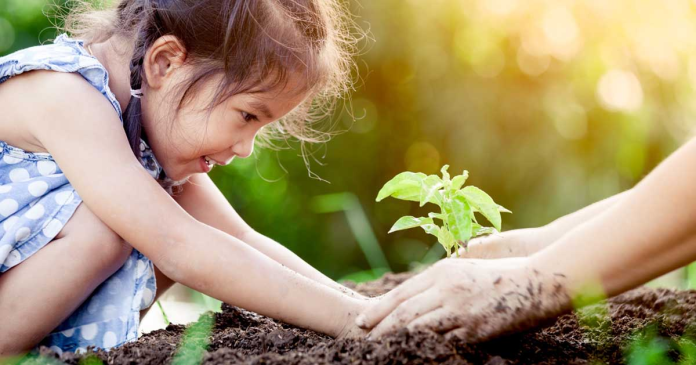As environmental challenges continue to rise, many parents are looking for ways to raise their children with values that support sustainability and mindful living. Eco-conscious parenting is not just about using cloth diapers or reducing plastic use—it’s about fostering a long-term lifestyle that teaches children to respect the planet and live responsibly.
From everyday choices to long-term habits, eco-conscious parenting focuses on instilling awareness, compassion, and a sense of stewardship in the next generation. As families rethink consumption habits, household practices, and even educational tools, the shift toward sustainability becomes a shared journey that benefits both children and the world they’ll inherit.
For parents looking to embrace more sustainable habits and raise environmentally aware children, this helpful guide on Eco-Conscious Parenting offers practical ideas and thoughtful strategies for everyday life.
Choose Reusable Over Disposable
One of the simplest ways to begin your eco-conscious journey is by reducing waste in the household. Start by swapping disposable products for reusable alternatives:
- Cloth diapers instead of disposable ones
- Reusable snack bags and stainless steel lunch boxes
- Washable cloth wipes and towels instead of paper products
These changes not only reduce your environmental footprint but also save money in the long run. Involving your child in these swaps—from packing lunch in a reusable container to sorting laundry—reinforces habits that become second nature over time.
Prioritize Eco-Friendly Toys and Materials
Children’s toys often come with excessive packaging and are made of plastics that contribute to landfill waste. Opt for toys made from natural, sustainable materials such as wood, organic cotton, or recycled plastic. Seek out brands that prioritize ethical production, minimal packaging, and durability.
Encourage creativity with open-ended toys like building blocks, art supplies, and nature-based play items. Not only are these better for the environment, but they also support imaginative thinking and cognitive development.
Teach by Example
Children learn best by watching the actions of the adults around them. Practice what you preach by demonstrating eco-friendly habits such as:
- Recycling and composting at home
- Conserving water and electricity
- Avoiding single-use plastics
- Shopping locally and seasonally
Take opportunities to explain your actions—why you bring your own shopping bags, how compost helps the garden, or why turning off lights matters. These small moments help children connect their choices with larger environmental outcomes.
Choose Sustainable Clothing and Gear
Fast fashion is one of the largest contributors to pollution and waste globally. When it comes to kids’ clothing, opt for secondhand options, sustainable brands, or clothing swaps with other families. Children grow quickly, so choosing durable, organic materials that can be passed down or repurposed helps extend the life cycle of garments.
Similarly, invest in high-quality, multipurpose baby gear that lasts through multiple stages of development or multiple children.
Make Eco-Friendly Meals
Food choices play a significant role in sustainability. Choose local, organic produce when possible, reduce processed food packaging, and plan meals to minimize food waste. Teaching children to eat seasonally and appreciate where their food comes from can foster healthy, eco-aware habits.
Get your kids involved in meal planning, grocery shopping, and even gardening. Growing a few herbs or vegetables at home—even in a small space—can teach responsibility and reduce reliance on store-bought goods.
Celebrate Experiences Over Stuff
Raising children in a consumer-driven culture can be challenging, especially when it comes to birthdays, holidays, and rewards. Shift the focus from material gifts to memorable experiences—outdoor adventures, museum visits, craft days, or community events. These moments build lasting memories while reducing clutter and waste.
When gift-giving is involved, consider eco-friendly gifts or support local artisans. Encourage relatives and friends to give sustainably as well.
Build a Green Community
Eco-conscious parenting becomes easier and more impactful when done in community. Connect with like-minded parents, join local sustainability initiatives, or participate in clean-up days, recycling drives, or environmental education workshops.
Raising your children in a community that shares your values provides reinforcement and support, and it helps children see that caring for the environment is a collective responsibility.
Final Thoughts
Eco-conscious parenting isn’t about being perfect—it’s about making intentional choices that benefit both your family and the planet. By teaching your children how to live sustainably through small, consistent actions, you empower them to become thoughtful stewards of the Earth.
From reusable habits to eco-friendly meals and community engagement, the steps you take today can shape a greener, more sustainable tomorrow for generations to come.
